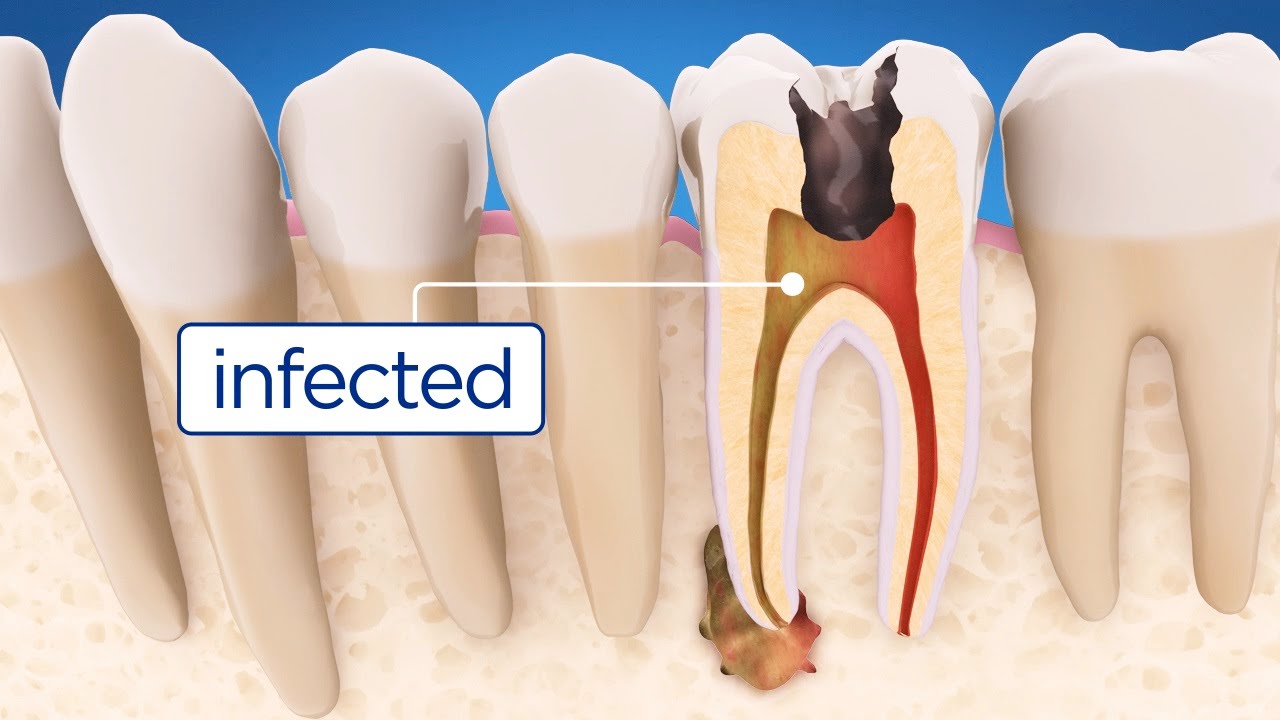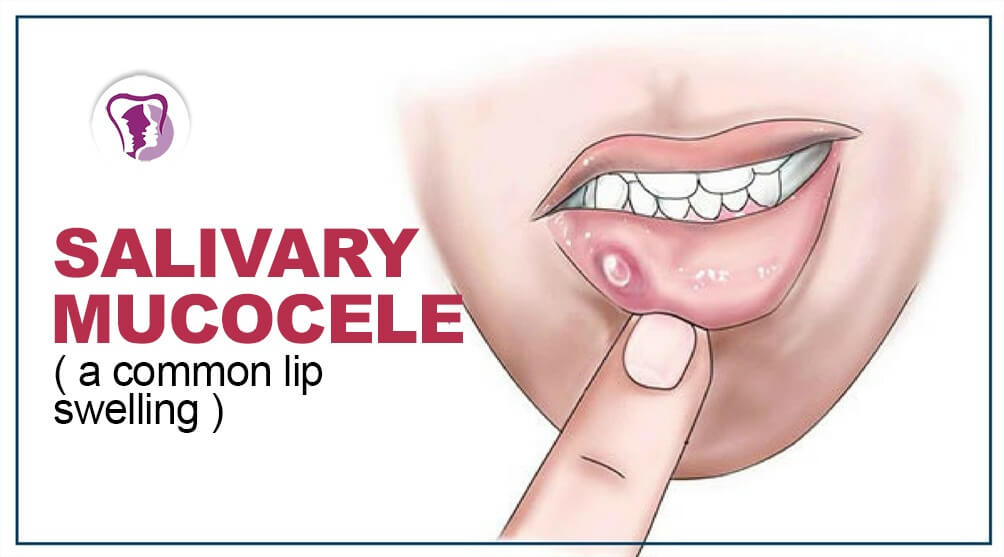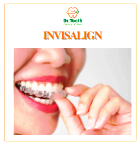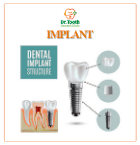Created at: 2019-12-21 03:04:54
Dental cysts can be serious and if left unchecked can lead to more severe complications, accompanied by intense pain and discomfort. If an advanced cyst situation evolves the results might permanently damage your healthy teeth and could affect your signature smile. Cysts don’t necessarily become infected for a long time, as they can grow slowly for many months or even years without symptoms occurring! However, sooner or later without attention an infection is likely to develop into an oral crisis requiring serious and costly dental treatment.
The number of patients showing up at their dentists offices with dental cysts issues is increasing, in Vietnam! The main cause is due to failed root canal treatments!
What are dental cysts?
A dental cyst is basically a closed sac of tissues! Some are filled with air, while others are filled with soft material or fluid. Cysts generally develop in the soft oral tissues such as the gum, lips and around or next to a tooth within the jaw bone. They’re usually slow growing and could be the root cause of irritation, pain in the jaw, or perhaps worse? If a cyst evolves into a serious complication you may be required to have major surgery to have part of your jaw removed.
A cyst can begin to form within various tissues in the mouth, face or jaw, in most cases when they first start forming they’re infection free. The inflammatory nature of a cyst begins to seed as the old dental pulp material starts to wear out at the root of your affected tooth, once the pulp dies inflammation erupts. As the process unfolds, an extreme amount of pressure will be felt around the bone structure of the compromised tooth, and it could eat away from the bone thus weakening it.
A dental abscess is not a cyst!
It’s not at all unusual for an abscess to form near or actually inside a cyst, which is the main reason some people may get the conditions confused. The fact is an abscess is similar, and also different than a cyst in several ways for the following reasons.
It would be difficult for you to be unaware that you have an abscess, as the main symptom is pain, which may be throbbing or intense. The pain is accompanied by inflammation-swelling-fever-fatigue and you may even notice an unusual taste or smell inside your oral cavity. Abscess pain generally begins suddenly and elevates to a more intense level over hours or days. The pain can radiate to the neck, jaw and ear and can escalate to a severe level without dental attention and treatment.
An abscess represents a local-acute infection (bacterial invasion), and usually requires root canal surgery to salvage the affected tooth.

Symptoms of Oral Cysts:
In general, if you have a dental cyst that is infected it will likely be inflamed, swollen and painful.
If your cyst is located in the mucosal lining of your mouth, it may attract your attention as a lesion or a blister. If you have a cyst that isn’t infected, often they’ll be no obvious symptoms at all. Therefore, unless your cyst has enlarged to the point where a lump has formed that’s visible or can be felt, it will usually only be detectable by a diagnostic scan or x-ray.
Some of the more common occurring oral cysts
Dentigerous Cyst – Usually develops and forms close to or on top of the crown of an un-erupted wisdom tooth.
Periapical Cyst (commonly known as Radicular Cyst) – Is a dental cyst that normally forms at the base of a tooth as a result of pulp infection or death of the nerve. A periapical cyst could potentially or perhaps not develop into an abscess.

Mucocele Cyst (often referred to as a Mucous Cyst) – This type of cyst usually develops in the soft tissue areas of your mouth, inner cheek, lip, tongue. They generally form because of a trauma or irritation to the tissues in the affected areas. If you have one, you would likely notice that it comes and goes and that it might release saliva at times.

Odontogenic Cysts – Are a grouping of dental cysts (in addition to the periapical and dentigerous cysts previously listed) that are often found in the jawbone. An odontogenic cyst often grows quite large before noticeable symptoms are realized.
The main reasons why dental cysts develop:
Usually cysts begin to form at the tip of the roots of a dead or dying tooth.
- Some form because of the improper way a tooth-teeth have grown and positioned themselves in the mouth, others because of the abnormal way a tooth has developed
- A root canal which has failed naturally or as a result of a botched procedure
- Because of a genetic syndrome (Gorlin’s syndrome), if this is the case there will be other symptoms involved
- Cysts can form around the crowns (and roots) of buried teeth. Wisdom teeth that are impacted (buried) are common causes for cyst formation
- Because the teeth that are being affected by a cyst have died (trauma or infection), the root of the teeth was not treated or was treated incorrectly.
Dental cysts can form in relation to any of your teeth and usually they only occur one at a time, however, some people are more susceptible to them than others.
What can I do to prevent dental cysts from occurring?
It is imperative-mandatory in order to prevent cysts that you maintain a high level of oral care and wellness, and visit your dentist regularly for exams and cleanings. As part of your oral due diligence, if you discover that any of your teeth require root canal therapy due to caries, trauma or gum disease, a thorough root canal process will be required.
Keep in mind teeth that remain healthy, rarely have cysts developing or forming around or close to them.
What are my treatment options?
If you have a cyst you’ll need a professional oral and radiographic examination, hence your treatment will be determined, based on the kind of cyst you have and it’s exact location. In order to treat your cysts effectively and restore your oral health, endodontic or root canal therapy may be the answer. Often a Cone Beam CT is also a good tool to create a definitive treatment plan.
If your cyst has existed for some time and your immune system is compromised in any way, it can become inflamed, cause throbbing and be painful to the touch. If this is the case, extraction surgery or root canal therapy will be your only options.
3D Cone Beam computer tomography utilizing Procera software can either help to detect cysts when they are small and/or prevent the formation of cysts by removing the initial starting point.
DR. TOOTH DENTAL CENTER – Huynh Thuc Khang Branch
Address: 90 Huynh Thuc Khang – Tan Lap - Nha Trang
Hotline: (0258)3515 788 - 0813 515 788
Business Hours: 7h30 – 18h30 (Every Mon to Sun).
- Google+/ Google Maps












